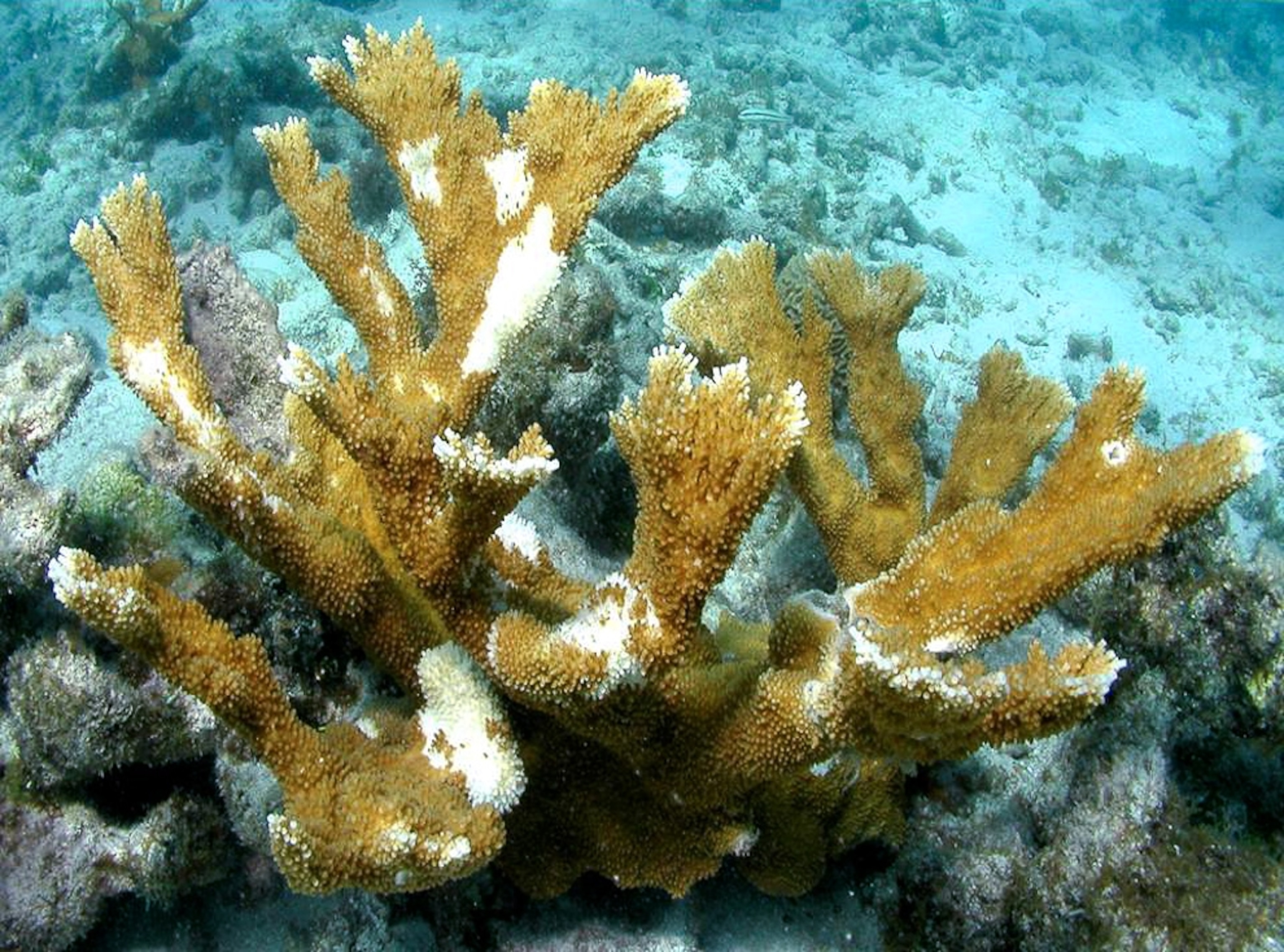
Human Feces Bacteria Jumped to Coral, Caused Die-off
As seas become warmer and more polluted, our bacteria may move in.
A mysterious disease that ravaged coral populations in the Caribbean and Florida Keys for more than a decade came from microbes living in human feces, a new study finds.
The discovery spotlights at least one disadvantage of making the seas more like our stomachs—warm and nutrient rich—experts say.
(Watch a video on the elkhorn coral die-off.)
Elkhorn coral was once the most common in the Caribbean, but its populations have been reduced by nearly 90 percent over the past 15 years, and it now faces "extremely high risk of extinction in the wild," according to the International Union for Conservation of Nature (IUCN).
One of the major factors in the elkhorn coral die-off was white pox, an infection that kills the thin layer of living cells on the coral surface to reveal the skeleton beneath.
A 2002 study found that white pox was caused by Serratia marcescens, a bacterium that is common in humans and that occasionally causes septicemia, an infection that results from bacteria in the blood.
But because Serratia is found also in deer, seagulls, and other species, scientists could only guess that human waste was to blame.
(See "Raw Human Waste Killing Off Corals?")
Bacteria's Unusual Evolution
For the new study, researchers exposed elkhorn coral to different strains of the bacteria. Some were gathered from animals—seagulls, deer, and cats—and one came from human waste material at a sewage-treatment facility in Key West.
The experiments proved that "it's only the strain from humans that kills coral," said study co-author James Porter, an ecologist at the University of Georgia.
The elkhorn disaster is the first known case of a human disease killing off a marine invertebrate species, according to the study, published online Wednesday in the journal PLoS One.
"Usually we're getting diseases from wildlife," Porter said. "But in this case we're giving our diseases to them."
The white pox case is also unusual, Porter said, because it represents a "triple jump" for the bacteria: Not only did it successfully leap from a vertebrate to an invertebrate species but also from a land to a marine environment and from the oxygen-free, or anaerobic, conditions in our intestines to the well-oxygenated waters of a coral reef.
The bacteria's interspecies jumping ability is perhaps not that surprising, given Serratia's history, Porter said.
"It was the first human disease to become resistant to penicillin in the 1960s," he said. "The microbe has a very flexible genetic structure, and that may have helped it make this triple jump."
(Related: "Swimmers' Sunscreen Killing off Coral?")
Stomach-Like Seas
In part because of the team's discovery, the city of Key West upgraded its sewage plants about three years ago.
"Before they upgraded, the effluent was loaded with [Serratia] bacteria. Afterwards, it was undetectable," he said. "We're not saying that not a single bacteria is getting through, but it is undetectable in the samples now."
The team still worries that Serratia or other human bacteria could cause similar diseases in other coral species in additional reefs around the world.
"Serratia prefers to live in the human stomach, which is warm and nutrient rich," Porter said. "We're worried that tropical oceans, under global warming and [sewage] runoff scenarios, are becoming warmer and more nutrient rich."
(Related: "Soft Corals Melting Due to Warming Seas, Study Says.")
Fortunately, the new study suggests that a straightforward solution can stem future outbreaks.
"I think the conservation message from our finding is clear and really unequivocal," Porter said. "Coastal zone communities that want to protect their environment have to treat their human waste exceptionally carefully."
More: "Human Waste Used by 200 Million Farmers, Study Says" >>